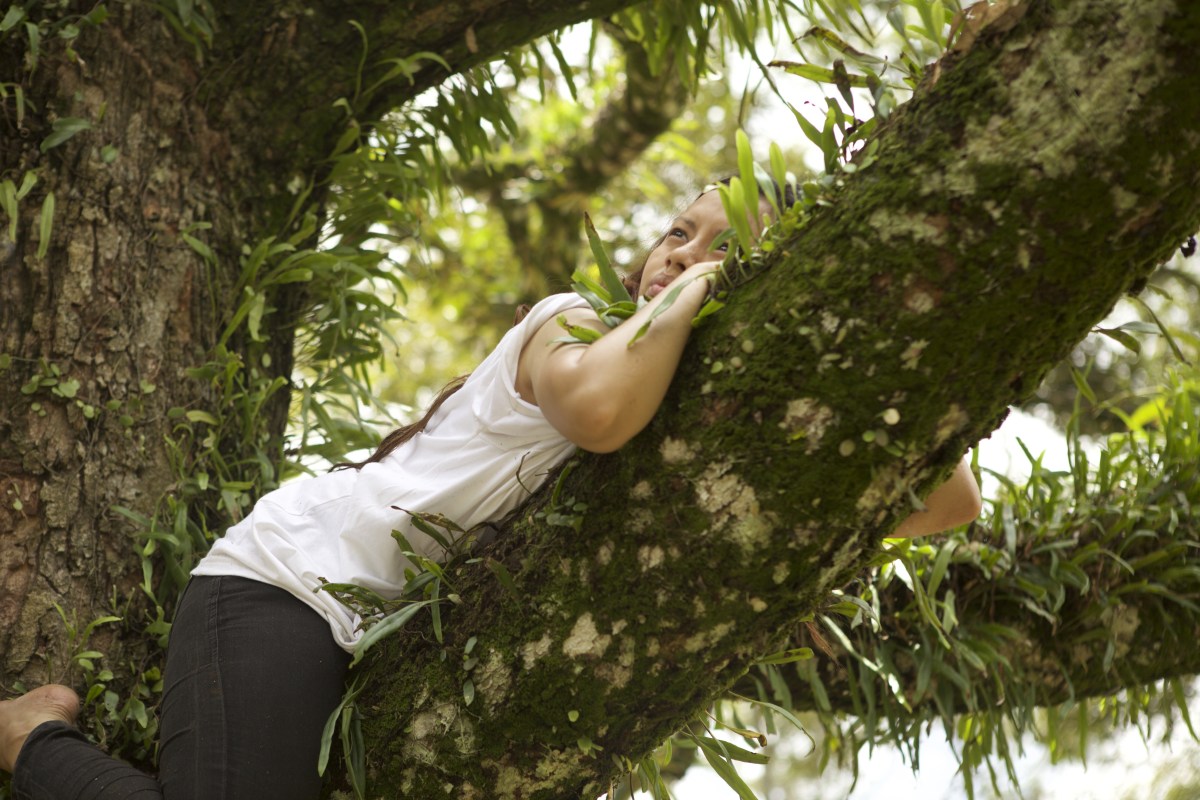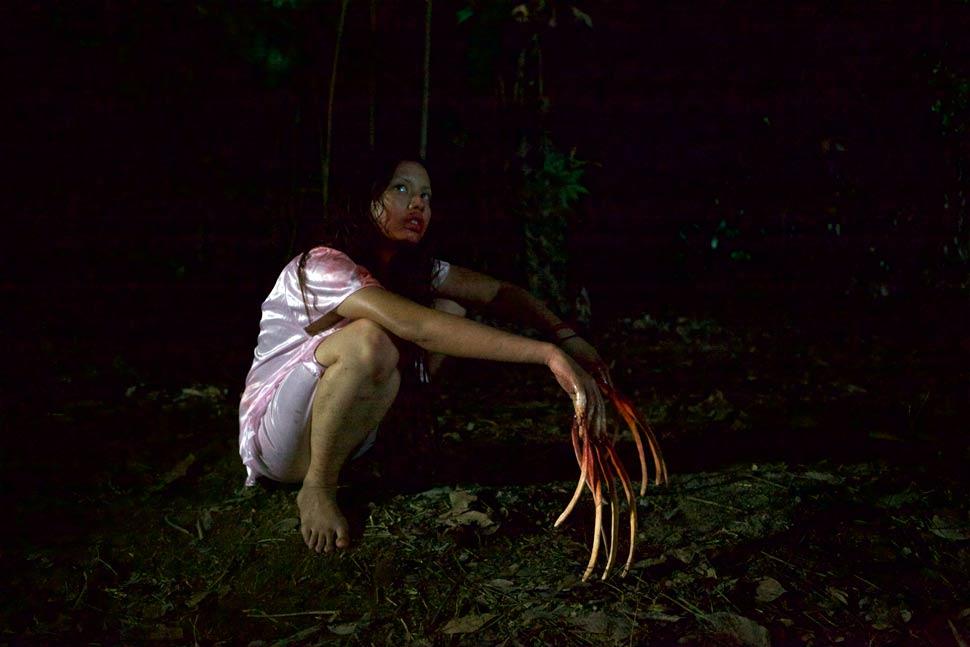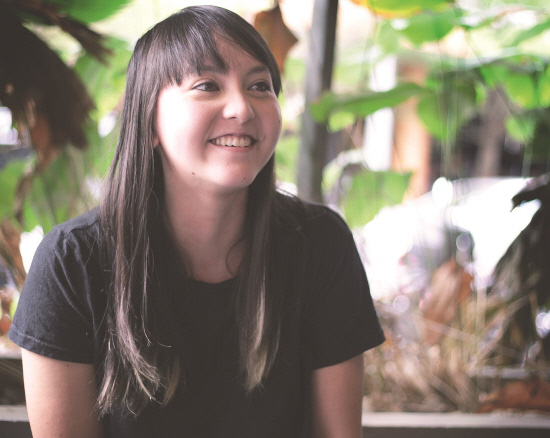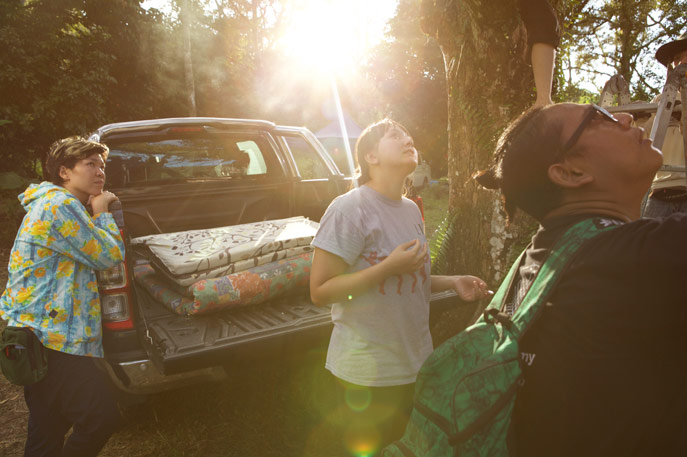Female Malaysian filmmakers other than Yasmin Ahmad and Datin Paduka Shuhaimi Baba do not often get talked about, but one director – Amanda Nell Eu – has successfully managed to engrave her mark in the international film industry as her short film Lagi Senang Jaga Sekandang Lembu was selected to compete in the Orizzonti Short Films Competition at the prestigious 74th Venice International Film Festival.

Being the first female director from Malaysia to have her third directional debut be selected for such an outstanding recognition on a global scale aside from being placed against 12 other worldwide directors from France, Greece, Thailand, Italy, Australia and more was of course no easy feat; and yet the Astro Shaw Shortcuts short film winner diligently aspires to keep contributing to the film trade, despite how strenuous it can get.
The 32-year-old filmmaker who graduated from the London Film School is currently working towards her first feature film set in Malaysia, and we recently spoke to her about her illustrious short film Lagi Senang Jaga Sekandang Lembu, which story is based upon two teenage outcasts who form an uncanny friendship in a village, before one discovers that the other is actually a pontianak – a blood-sucking female vampire originating from traditional Malaysian folklore.
Q: When did you realise that filmmaking was for you?
A: When I was a teenager, I was introduced to slightly different films; old classics, German expressionism and black and white films. I fell in love with that magic and started watching different types of films, especially those you wouldn’t normally be able to see in a cinema. I was based in the U.K. and had easy access to these films.
I’ve always been in love with cinema but never realised that it was a possibility of working in it. That’s an insane job to do, but I decided to go to art school and through there, I picked up the camera. When I decided to go to film school after, there was no looking back. That sealed the deal for me.
Q: Would you say that your upbringing and having studied abroad has had an effect on your work?
A: Yes, definitely. Directors and writers are very specific and personal. What makes who you are will go into your work. My background, experiences, memories, all have to do with who I am now, and who I am now has to do with my work. I think a little differently maybe.
One thing that is very clear is that I grew up in an all-girls boarding school in the U.K., which is a crazy environment because you’re living in this space, you can’t go out and you’re with 500 teenage girls. You can imagine what that life would be like, as well as the dynamics you would have.
That experience has become an obsession of mine, which is why this film is about teenage girls, and so is my next film. It’s such a big part of my life. Seeing those characters and experiencing how girls grow up in an all-girl environment was very interesting.

Q: Tell us more about Lagi Senang Jaga Sekandang Lembu.
A: It started out because I wanted to make a pontianak film. I love that monster and I’ve always wanted to explore her existence. Ghost stories are folk stories and they’ve gone through many generations. It’s interesting to see how they started, what society thinks about these monsters, and why they had to be created.
It was my exploration on what she represents to me. I think she needs to be there because she represents strength and people fear that strength. She came from suffering. That’s my respect to the pontianak and that was why I wanted to make a film about her.
Through development of the story, my experiences in boarding school naturally came out. They drew me to this teenage, coming-of-age plot, because you see wild sides of girls when they are on their way to become adults. It can’t be controlled sometimes.
Q: How do you feel being recognised in the Venice International Film Festival, and that the pontianak is being highlighted on an international level?
A: Having the pontianak be recognised is awesome because it’s an introduction to our culture and feminine identities. It’s exciting to show the world that this is our female monster and how bad *ss she is. Maybe some wouldn’t get the full story of what she is, but they may get what she stands for, which is what I love most about her.
It’s unbelievable that the film was selected. It’s all down to hard work from my team, the great support that I’ve had, and also the opportunity that this film was made. It’s not the kind of film people would all jump at; it’s not the typical commercial film. It’s quite the opposite. I feel honoured to have been able to make a film I wanted to make.
Q: What made you cast the two female leads, Sharifah Aryana and Sofia Sabri?
A: I love casting. It’s the most exciting thing. I spend a long time casting and I have very specific things I look for. I pick people for very odd reasons, and no one knows why. If she can’t read, she can’t act, she can still do this other thing. When I wrote the script, I started visualising things and from there I threw out that visual, then meet people.
I knew Yanna personally before and she was always so beautiful, sexy and mature. She’s such a confident girl and my character is the opposite. There was this one thing she did in casting where she ran across the room to switch off the lights, and I was like, ‘The way you run is exactly what I want,’ so that’s why I casted her.
The other girl Sofia was still a student. I spoke to dancers and she is a dance student. Looking at dancers for a pontianak is perfect because she is a creature who would know how to move differently. She came in, started talking to me, but she was squatting and hopping around. That was it for me. That’s the pontianak 100%.
Q: As a director, you work with a bunch of creative people. It’s not a one-man show, so what makes teamwork like this fruitful for you?
A: It’s respect for each other and respect for each other’s work. I’ve worked in a lot of film sets. Sometimes there’s miscommunication and ego involved, but I love this team because we’re small and we became good friends after working together. Everyone knows how each other’s brains are different and it’s working together that way. I really had one of the best teams ever, that’s kind of rare. I was very lucky, it worked out very well.
Q: What is your ultimate goal as a director and what do you want to use your voice for?
A: My ultimate goal would be to carry on making film, to always have that opportunity and start making feature films as well. I have quite a specific voice, and I’m obsessed with exploring the female identity. That’s what I’m using my voice for right now. People grow, people change, so we’ll see what happens in the future, but currently, I’d like to tell female stories from Southeast Asia to give representation for that identity.
Q: Is it ever important for you to tell stories of heroines instead of heroes?
A: I just feel closer to heroines. I know what women are thinking and it’s easier for me. I grew up with strong women in my family, so it’s something that I know very well. It’s also nice to see more heroines represented on screen because even as a kid there was a lack of heroines for me to look forward to. With that said, I don’t like it when Hollywood forces female heroes because you lose what the whole point is. More women telling stories about women, absolutely.
Q: Who is the one director you would love to meet and learn from?
A: There’s a director I respect a lot, but he passed away last year so I’ll never be able to meet him. He’s called Abbas Kiarostami, an Iranian director. His stories have so much honesty and a lot of his people’s culture. He has the ability to tell something so honest about his characters. He’s genius-level incredible. He would be a very good mentor.
Q: What do you think of the Malaysian film industry and how would you change it?
A: Our industry is still a baby, which is a shame. In our olden days, we had P. Ramlee and the Shaw Brothers, so we had time to develop but somehow we haven’t. One thing I wish I could change is that I want people in the industry to tame more risks with their stories.
If I had pitched in my story as a feature film, it would get rejected because it’s not action film or a horror film. ‘How are we going to make money?’ is usually the question. I understand because it’s a business, but sometimes the best things come out of risks and old Hollywood used to do that.
Netflix takes great risks with their stories. Risks would either end up in failure or successes but I’d much rather have success than just keep trying the same safe thing. Please take more risks. You don’t have to put all your eggs in one basket. Something good might happen.
Lagi Senang Jaga Sekandang Lembu Trailer from Nell Eu on Vimeo.
Q: What are some of the challenges you’ve faced in filmmaking and has your gender ever been a hindrance?
A: With this particular project, absolutely not in terms of gender being a hindrance. In other shoots and projects, yes. It’s still a boys club at the end of the day. You still get bullied and you don’t get the respect you deserve. Just because I’m female and younger, it doesn’t make me any less than you. That does still happen unfortunately.
Challenges I face are in post-production. It takes me ages to edit and let go of things. My films are very personal and I feel connected to them. In the shoot, everything that goes wrong, goes wrong and you go through an emotional experience with your team. It’s painful for me, but that’s something I have to overcome – to throw stuff away for the good of the film.
But I love those challenges because they give you surprises. Things going wrong gives you surprises and you surprise yourself and how you handle them as well. I appreciate challenges.
Q: As someone who is hands on in filmmaking, what would a regular spectator would not have known?
A: This is one of the hardest things to do. My production designer who is also a visual artist said, ‘I don’t know how you do it, and I also don’t know why you do it.’ I get it. You have to be crazy to make films. The financial payoff is not there and you’re working so hard. Your health just deteriorates, but somehow you’re crazy enough to want to have your voice on the screen.
I think spectators don’t know how emotionally and physically difficult film can be. It costs so much money and takes time. People are surprised when I tell them how long it takes to write a feature script. It’s probably about two years. You’re putting your heart and soul into things, so it takes time. People sit in the cinema for one and a half hours, walk out and forget about it.

Q: What makes a great film for you?
A: I love films that have honesty in its storytelling and I also films where you can see the director’s hand; when people use the word outré, but that’s what I mean. You know this film has that director in it and no one else. If you give the same script to another director, it will be completely different. I tend to steer towards the art-house genre. That’s something I want to achieve with my films too.
Q: List three movies that have been life-changing.
A: I would say Mean Girls because it’s so good and I can quote the whole thing, but the three films that have made me change the way I think are Unrelated by Joanna Hogg, Taste of Cherry by Abbas Kiarostami, and Tokyo Story by Yasujiro Ozu. These films changed the way I think about the world, so they are very impactful for me.

Q: Tell us more about your first feature film.
A: It is in its very early stages so I’m currently writing and developing it. I already know the initial themes I want to cover and it’s going to be about teenage girls again, a coming-of-age film. I am now touching themes on body image and bodies changing, because as you’re growing your body changes. It’s one of the scariest things ever. It’s leaning towards a body horror.
Q: What else are you passionate about aside from filmmaking?
A: I love cooking and pole dancing. I’m at the pole studio three to four times a week. I started a long time ago and then I quit for three years so I lost every strength in my body, because of film. I took it up again this year so it’s all coming back to me slowly.
The older you get, you have to balance your health and passion. I want to stay healthy and keep making films, but I do really love pole dancing. It’s fun and the adrenaline you have is crazy. Maybe I’m going to the pole dancing studio because it’s an all-female environment. I’m comfortable there. Maybe that’s why I’m obsessed with it as well, subconsciously.










